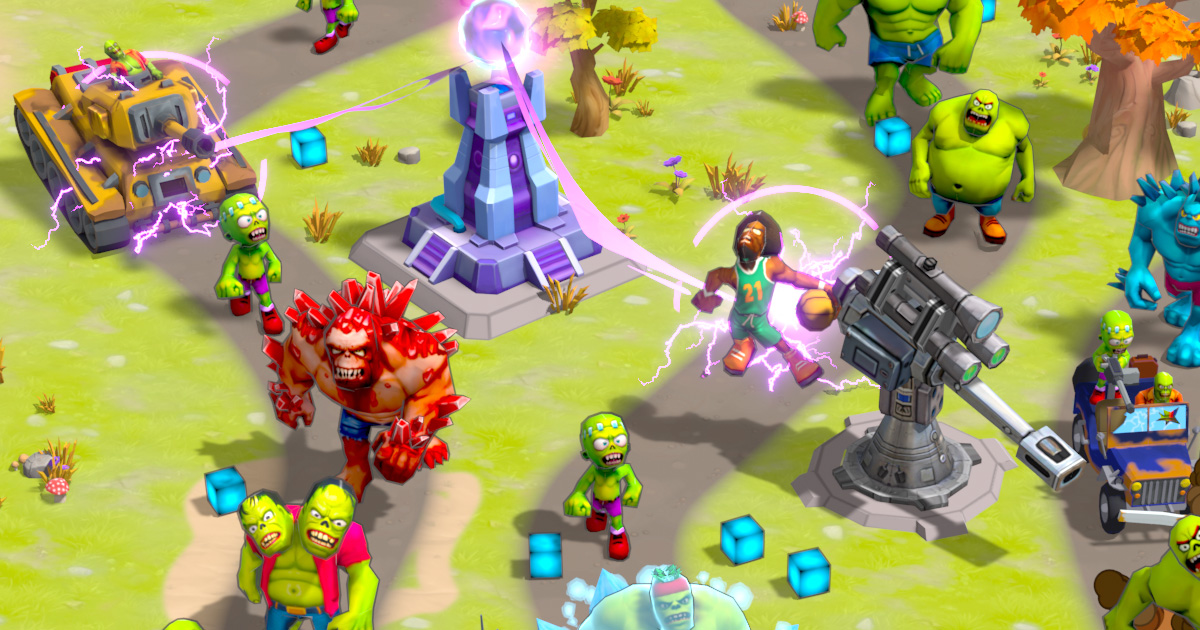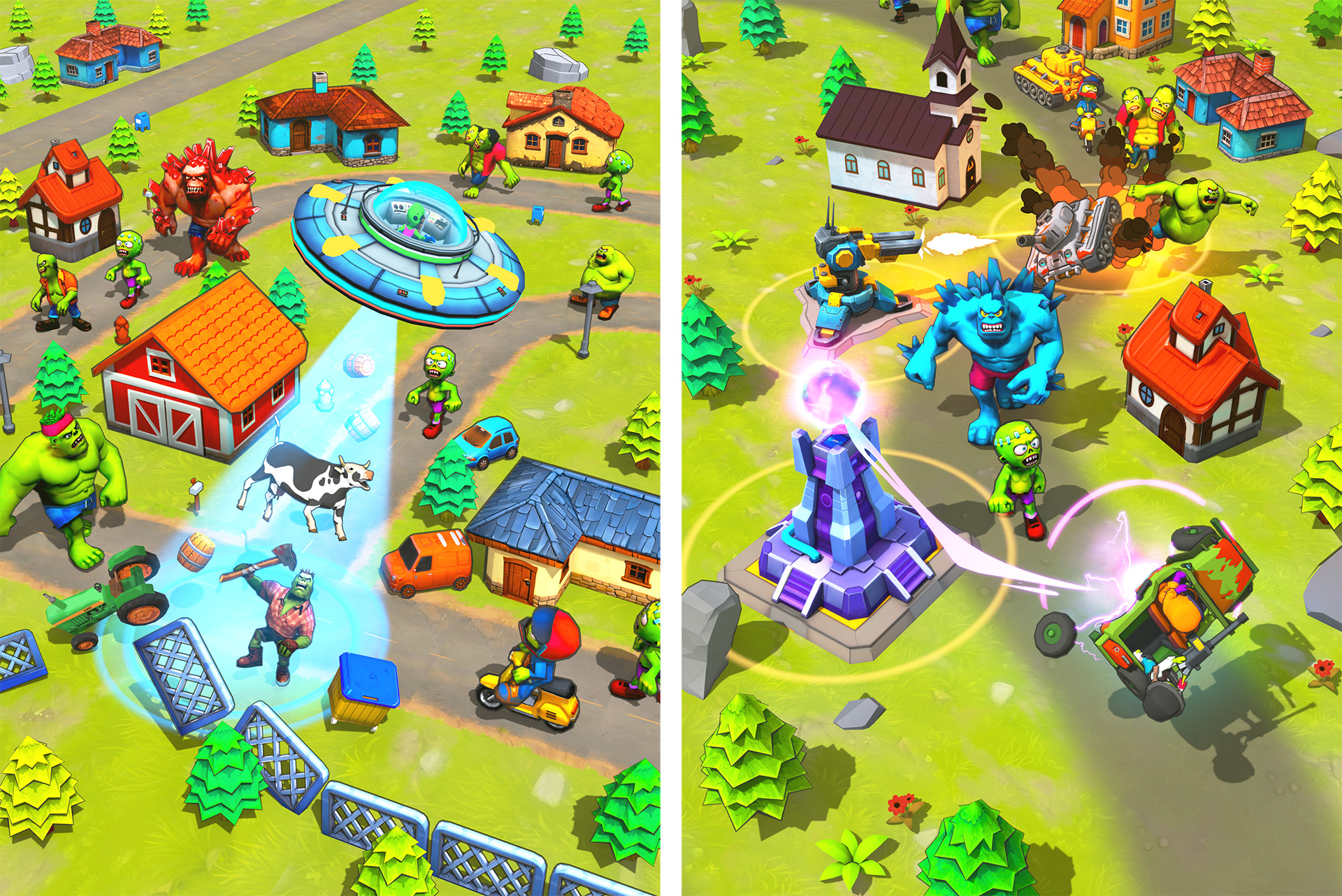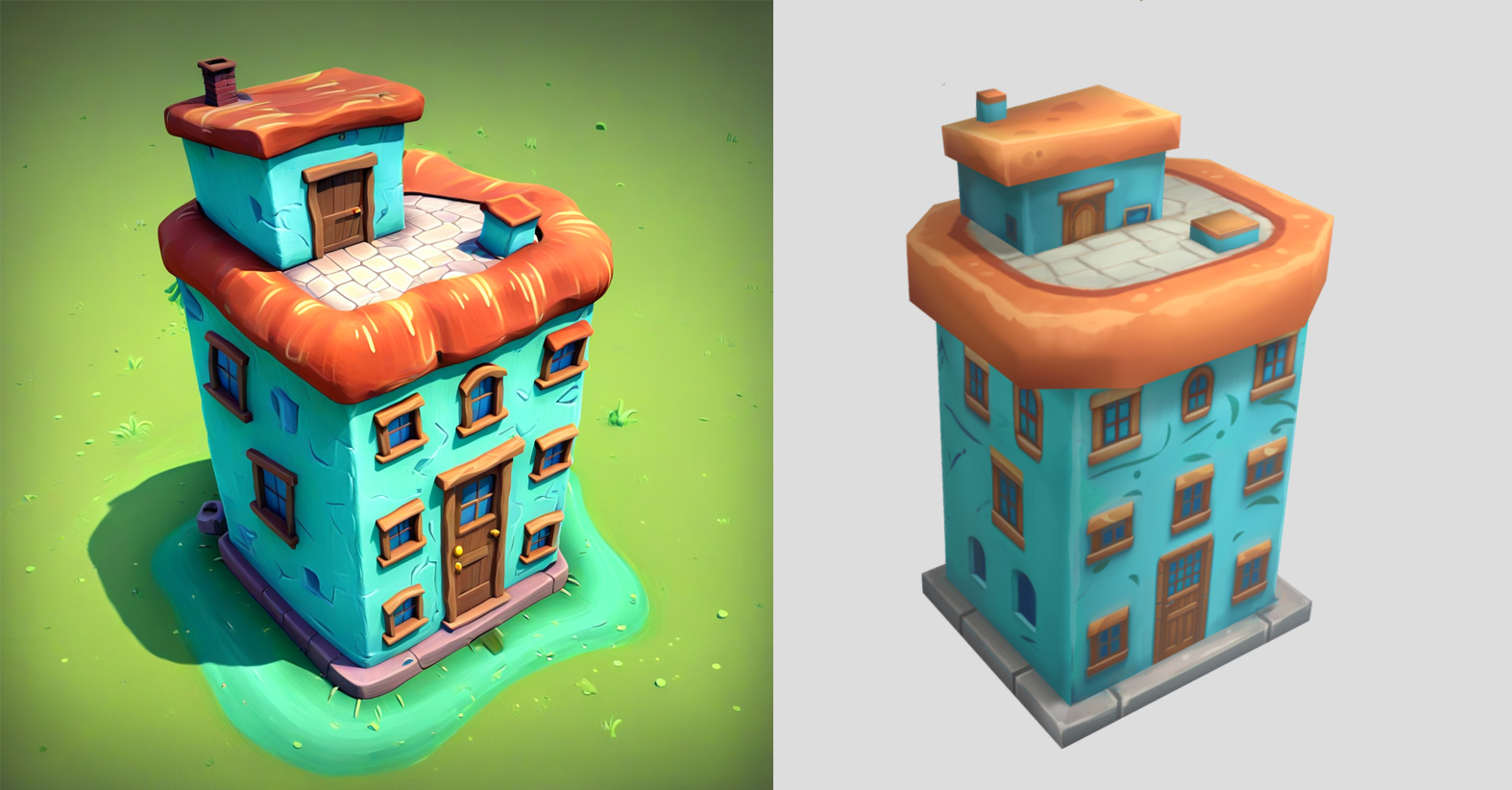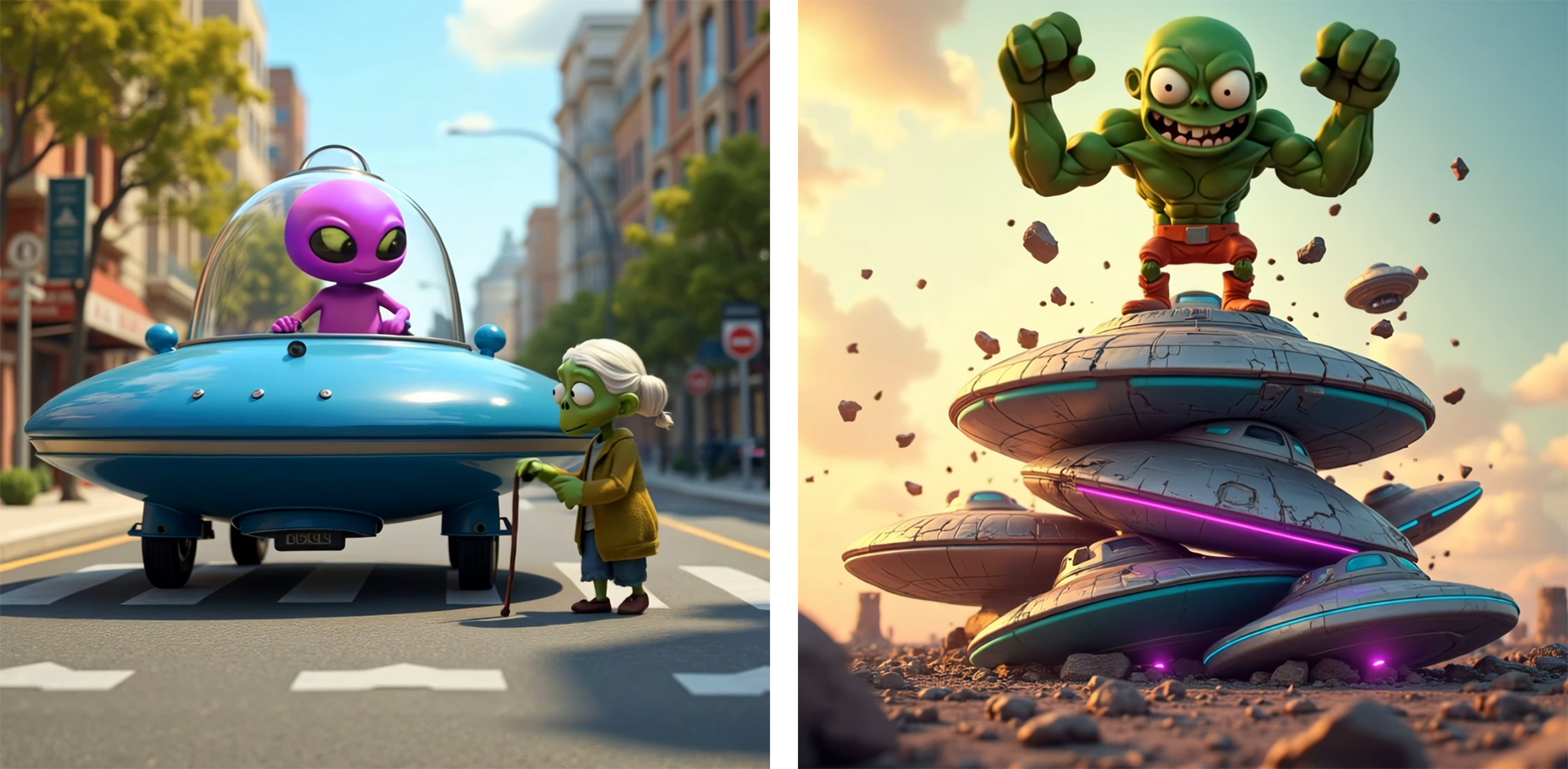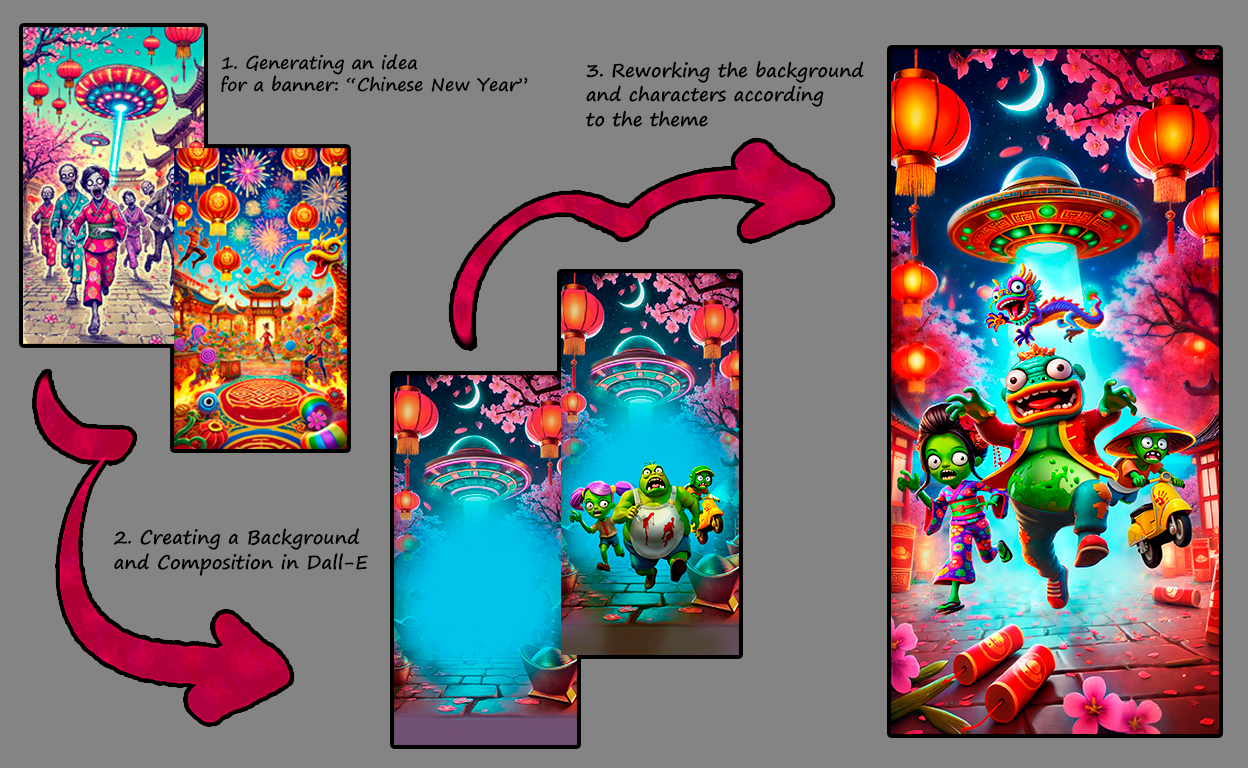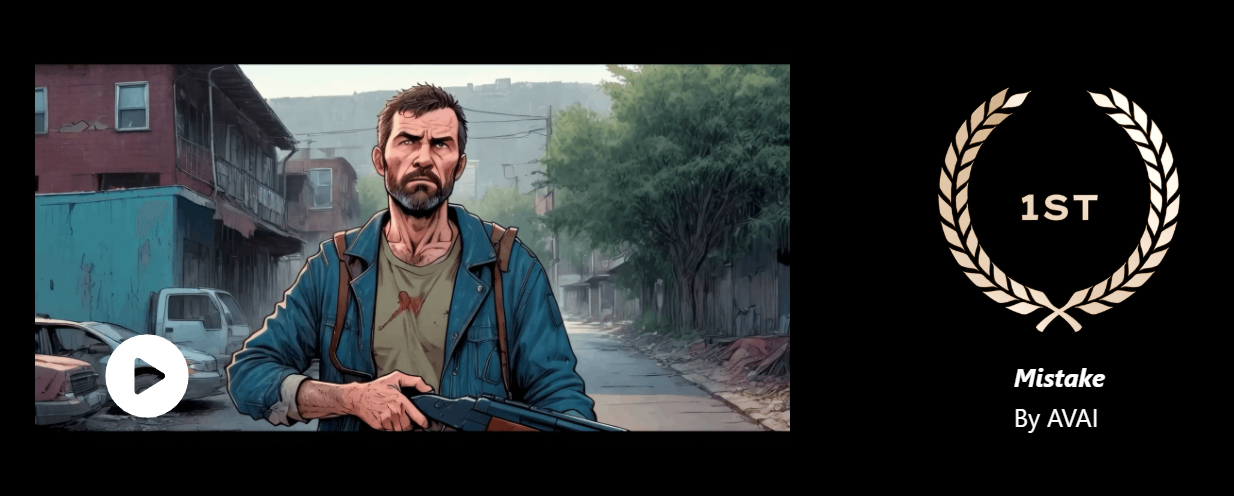Game Gears: "With the help of AI, we've accelerated game development by 4 times"
In the development of Aliens vs Zombies: Invasion, the studio Game Gears, which is part of the GDEV holding, actively employed AI. How exactly these tools helped optimize production is detailed in a column for App2Top by Alexander Vaschenko, the CEO and AI evangelist of the studio.
Aliens vs Zombies: Invasion
Alexander Vaschenko
Game Gears and Aliens vs Zombies: Invasion
Let me start with a brief introduction about us. Game Gears is a gaming studio under GDEV, whose DNA now includes the use of AI technologies. We employ them to speed up production, optimize game mechanics, and enhance creativity.
Our first product within this chosen paradigm was the mobile game Aliens vs Zombies: Invasion. It combines several genres at once—tower defense, action, and strategy.
In Aliens vs Zombies: Invasion, the player controls a flying saucer. Their task is to fly around the level collecting various items with its beam. The more collected, the better the saucer can be upgraded. Players must also build turrets to prevent zombies from destroying the base.
Gameplay of Aliens vs Zombies: Invasion
Where AI Was Applied in the Creation of Aliens vs Zombies: Invasion
We have been and continue to actively use AI in:
- content creation — 3D and 2D assets;
- programming — writing new modules;
- game design — balancing the economy, generating new character abilities, new entities, and so on;
- marketing — generating AI videos for advertising;
- administrative processes — accounting and document management.
We also completely moved away from using scriptwriters. Game designers write all in-game texts themselves with the help of AI.
Example of AI content refinement
We primarily use:
- GPT;
- Cline together with Claude;
- Midjourney;
- Flux;
- Krea;
- Kling;
- Runway;
- Hailuo
- Tripo AI;
- Rodin.
In addition to these tools, we also utilize various services for 3D modeling, image processing, and video production.
In the future, we plan to integrate AI into game testing and create personalized content using generative intelligence.
Concept and model made using AI
AI Helps Us Create Games Much Faster
While it’s not possible to fully automate development, AI greatly saves time. On average, generative artificial intelligence allowed us to speed up game creation by about four times.
For instance, it takes a game designer at least a week to come up with a hundred different abilities for a character. AI can produce a draft in an hour. Of course, this is not final-quality work: designers still need to refine the document.
In terms of game design (not just writing documents but also editing and balance checks), automation has accelerated related processes by 2.5 times.
Equally impressive results were achieved in graphic work when implementing AI. The speed of creating 2D and 3D content increased by 10 to 30 times compared to manual work.
Concept and model made using AI
Typically, we follow this pipeline:
Midjourney → 3DAi → Rodin → Final manual processing
Regarding analytics and marketing, we also saw significant speed gains. It is harder to quantify, but potentially even more substantial than in the areas described above, because:
- AI analytics allowed us to optimize game mechanics in real-time, increasing player engagement;
- in marketing, using AI almost entirely automated the creation of some* types of creatives (we can talk about hundreds of times acceleration).
* Gameplay ads showcasing real gameplay are still out of reach for the technology.
Creatives made using AI
We genuinely strive to apply AI in all possible scenarios, but we don't go to extremes. Our approach to using AI is based on a simple principle: if AI works slower than a person or makes more errors, it is better to leave the task to a human.
As I mentioned earlier, AI has proven to be incredibly powerful in creating 3D models. Its use speeds up work by 30 times, which is why we immediately adopted this technology. However, animation of models—specifically due to the simplicity and specific needs of our project—remains a task better handled by humans.
We also understand that almost any AI content requires not just verification but refinement by an experienced specialist. For instance, in 3D modeling, the AI successfully handles 80% of the work, but the remaining 20% requires manual adjustment.
Workflow for the banner created for Chinese New Year
A Team of Enthusiasts
Such effective use of AI requires the right team. One that is passionate about integrating generative artificial intelligence.
For this reason, when hiring new employees, we assess their neuroplasticity, their ability to adapt to new technologies: our goal is not simply to use existing tools, but to grow alongside them.
It’s important that new specialists be as passionate about AI as we are, true enthusiasts constantly bringing new ideas, experimenting with this technology.
Many of us are so dedicated to AI that even in our free time, we create non-commercial videos using neural networks. Some of these have gained recognition. For example, our Steampunk Ironman project placed 4th at an AI festival, and the short film Mistake, about a zombie apocalypse, won first place in the Rendering & VFX category at the AI Filmmaking Initiative Project Odyssey.
Videos by Game Gears are released as AVAI studio
The Future of AI
Based on my professional experience, I firmly believe that soon, neither the video game industry nor the film industry will be able to do without AI. They won't be able to exist for long in their current form.
Speaking of movies, actors will soon be digitized, and content will be created quickly and cheaply. Hollywood will need to adapt, or it will be replaced by independent AI creators and streaming platforms.
Why have billion-dollar blockbusters when anyone can create one at home? I, for one, am already creating films with similar effects and production levels. The only limit is imagination.
AI will transform the entire entertainment industry. Moreover, for AI enthusiasts, the future is already here, and it is entirely digital.
